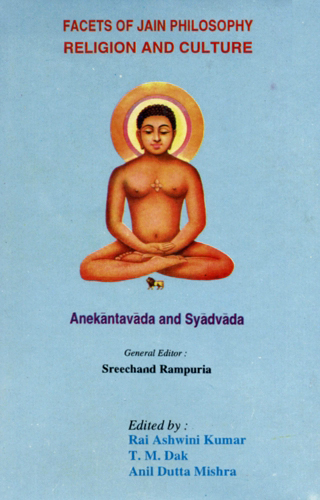The Jaina theory is unique. Its logic cannot be incorporated either into two-valued logic (truth and falsity) or many-valued logic (truth and falsity or doubtful). The law of double negation also does not apply here. The linguistic philosophers will also say that if Syāt is translated as 'probably' then 'it is probable that' is written in meta-language but if it is translated 'relatively' then it becomes part of the object language. My own view as indicated above is that it is translated into 'relatively, in a certain sense'. Then every proposition is conditional, you have to state the conditions and presuppositions of every sentence that you utter of have it in mind. The charge of pedantry can be levelled against the Jaina logic.
Next I will deal with the controversial question of 'Is the absolutist criticism of Syādvāda justified?
It is natural that the absolutist should criticise syādvāda because absolutism (especially the advaitic variety) and syādvāda relativism are diametrically opposed to each other in their fundamental presuppositions. Hiriyanna observes, "The half-hearted character of the Jaina enquiry is reflected in the seven-fold mode of predication (Saptabhaṅgī) which stops at giving us the several partial views together, without attempting to overcome the opposition in them by a proper synthesis. It is all right so far as it cautions us against one-sided conclusions but it leaves us in the end with little more than one-sided solutions. The reason for it, if it is not prejudice against absolutism, is the desire to keep close to common beliefs (Hiriyanna-Outlines of Indian Philosophy). Elsewhere also Hiriyanna makes the caustic comment that if all our knowledge concerning reality is relative, they say (the old critics like Śaṅkara, Rāmānuja etc.) the Jaina view must also be relative. To deny this conclusion would be to admit at least one absolute truth and to admit it would leave the doctrine with no settled view reality and thus turn it into a variety of scepticism.
Another critic says that Jaina philosophy is a philosophy of compromise only. It offers no solutions. At best it is a pseudo solution to a pseudo problem. The problem is pseudo problem because two levels of thinking are confused the ontological level and the propositional level.
Dr. Radhakrishnan sums up the absolutist position when he remarks in his book 'Indian Philosophy' "Yet in our opinion the Jaina logic leads to a monistic idealism (by which he means 'the hypothesis of the absolute') and so far as the Jainas shrink from it they are untrue to their own logic".
Belvalkar doubts whether the dialectic sprung up from the same teacher. It does not, according to him spring naturally from Jaina philosophy.
Another critic says, "We see the tendency to please everybody and to compromise and in trying to compromise it involves itself in self-contradiction the saviour of all systems is committing suicide" (The Jaina Instrumental Theory of Knowledge, Rao).
Padmarajiah in his Jaina theories of Reality and knowledge answers the critics by saying that the seven modes of syādvāda express 'partial truths' which do not firmly hang together as a logical necessity is only the prima facie view of syādvāda. That their truths are severally partial is true. But from this it does not necessarily follow that they are an odd collection of arbitrary 'half-truths' lacking in proper synthesis or system. The fact that the truths presented by them are alternative truths which individually touch every aspect, and together, all the aspects, of a situation in a systematic way. A certain actuality, like the jar, an example with which the modes have been illustrated, is looked at from the possible seven angles and the deliverance of these modal judgements does represent a synthesis which is neither 'loose' nor unsystematic.
Absolutism cannot be refuted, it dies old age. Since its assertions are unverifiable, further comments on the systems are unnecessary. Syādvāda raises an important point that truth is best stated in a series of conditional propositions and truth can be shown, not said. Bertrand Russel once defined philosophy as substitution of articulate hesitation for inarticulate certainty. To that extent syādvāda has real relevance for modern times. Indeed it is true to the spirit of modern times viz., relativism. Its idiom is surprisingly modern.
 S.H. Divatia
S.H. Divatia

